Calvin Klein presents JeanPaul Paula’s Nos Kultura
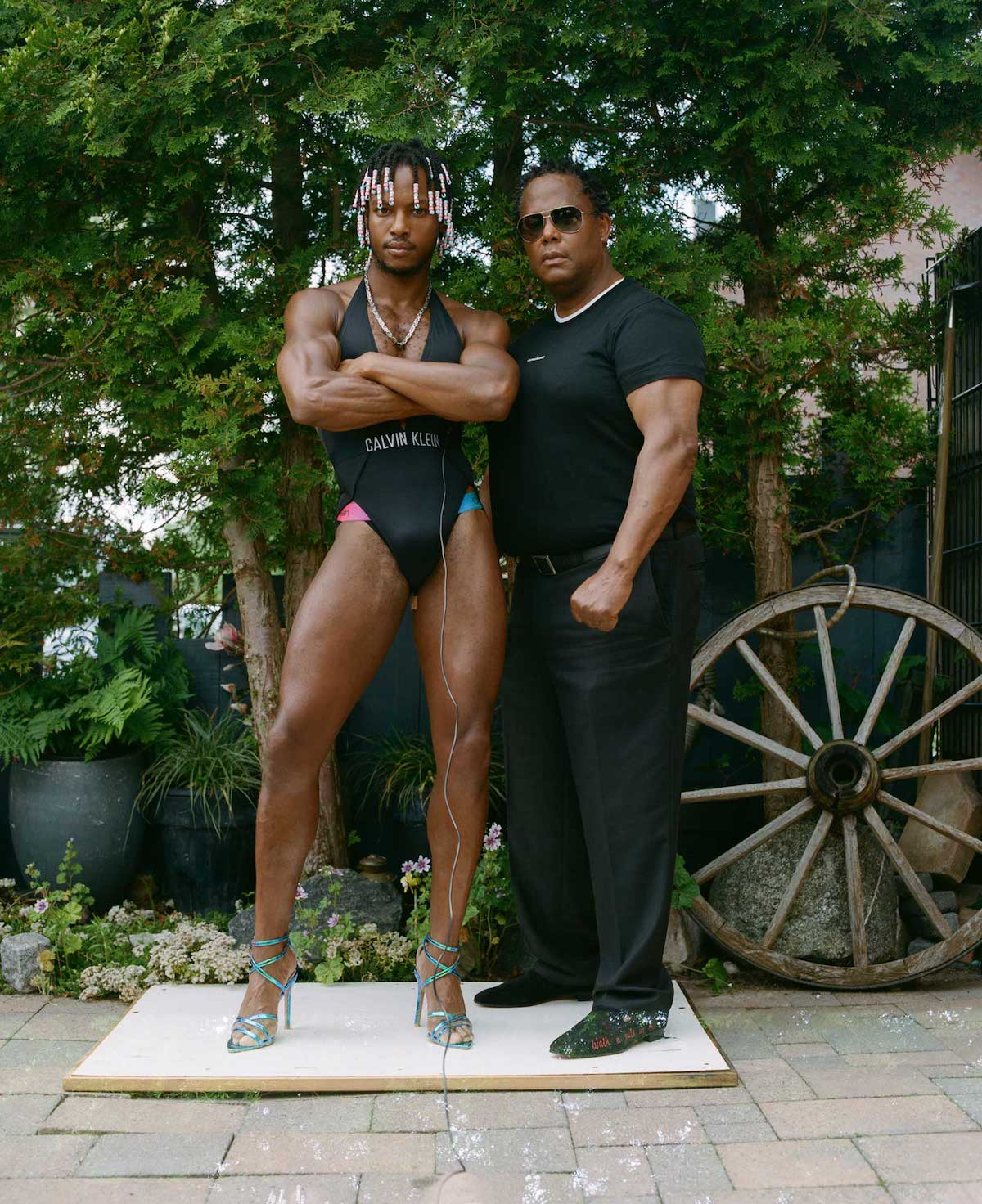
My Father, JeanPaul Paula
Continuing the #proudinmycalvins movement, Calvin Klein is back in Amsterdam with a not-to-be-missed photography exhibition in collaboration with multi-disciplinarian JeanPaul Paula. The stylist, photographer and creative director has curated an anthology of images exploring the pillars of his identity: his heritage, sexuality and life as a black gay man. With this, he examines how he (re)connected with his family and self during the COVID-19 pandemic.
Described as “Intimate and emotional”, Paula’s work is a refreshing take on the classic ‘family album’; featuring his parents, step-parent and siblings in their homes. Alongside Paula’s photography, he vulnerably shares the experiences contextual the imagery and the narratives which relate to his sexuality.
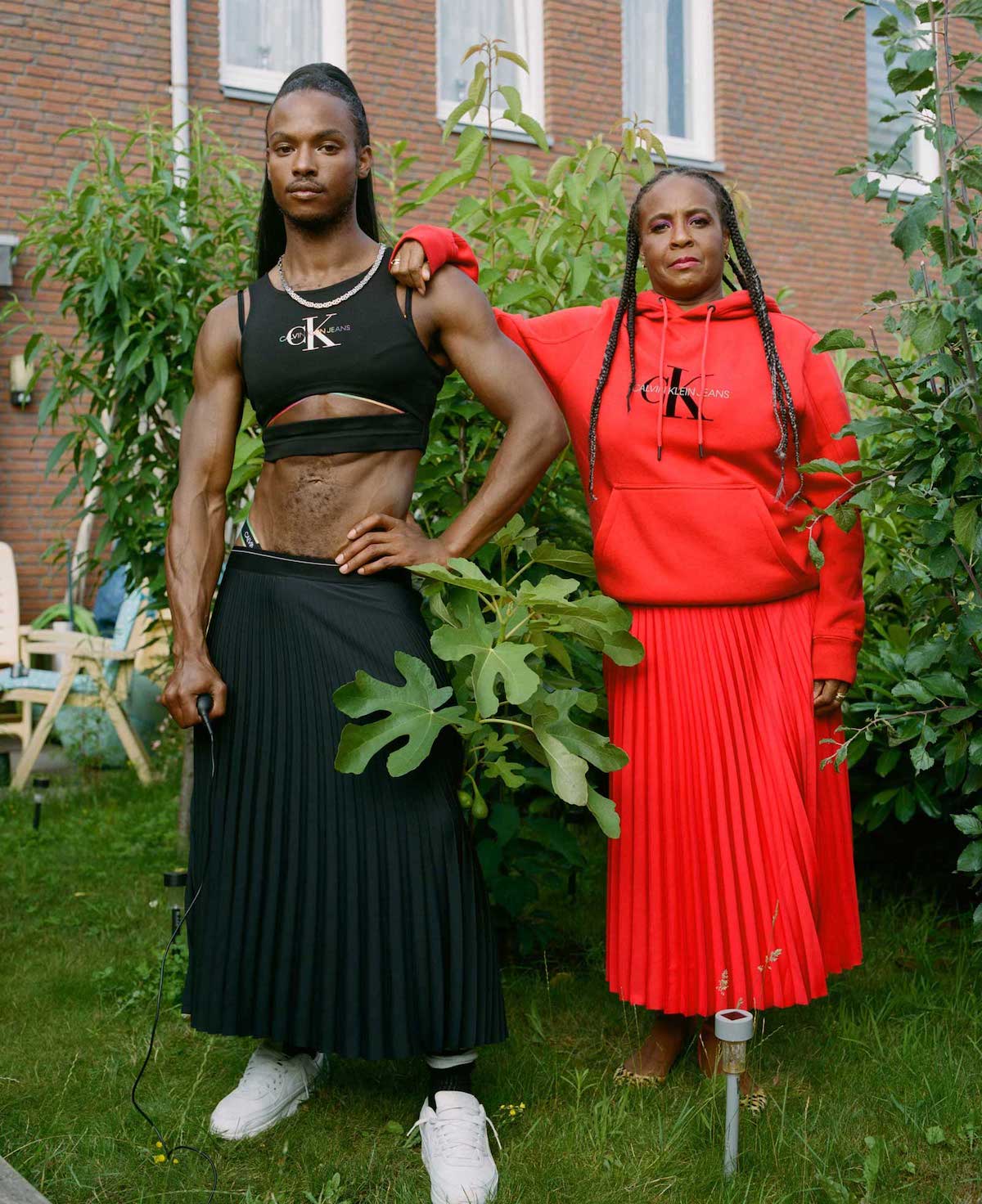
My Mother, JeanPaul Paula
First off, thank you for discussing your work with me. How has your week been so far? It’s quite a hectic time here in Amsterdam!
I’ve had an amazing week, I’m very busy now with the preparations of my new exhibition Nos Kultura.
Your art spans many disciplines, yet always maintains a raw sense of inquisitiveness. How did you first come to the inspiration behind this exhibition with Calvin Klein?
Well, I’m currently working on a bigger project: a film that discusses homophobia in the black community. With this, I quickly came to the idea of discussing the very moment that my father apologised to me for kicking me out of the house for being gay. When I was 28 he wrote me a long message that started with the words: “My son I am sorry…” Those words shifted the course of my life. I went from feeling and being alone to reconnecting with my family. After this, I got to rebuild my relationship with my family. We live in a world where a LGBTQIA+ person’s coming out, is immediately up for discussion (especially when it does not hold up to society’s demands), only to then discard them when they don’t fit the mould meant for them. My story is unfortunately not a unique one, many black and brown LGBTQIA+ individuals have the exact same experience.
Within this reflection of your familial relationships, and actively forming new-beginnings. How does this present itself visually within your work?
In my family we have been photographing each other for as long as I can remember. There is therefor a sense of ease that I am able to capture, because I am connected to them. Within my reconnecting to my family, I am taking them into my world and with this, showing them how I view the world. Through photographing them I discuss everything from self-image, race and sexuality. Gradually taking them out of their comfort zones, there’s growth that we make as a family and it is never ending – the learning never stops.
What is the message (or emotion) you hope for the audience to walk away with after visiting the exhibition?
There is no pride for some of us without liberation for all of us every day. LGBTQA+ individuals are murdered in South America. Often this is done by a family member or someone they know. A trans person is being murdered every 23 hours in Brazil. I need black people to start having conversations about this because this Pandemic has to end.
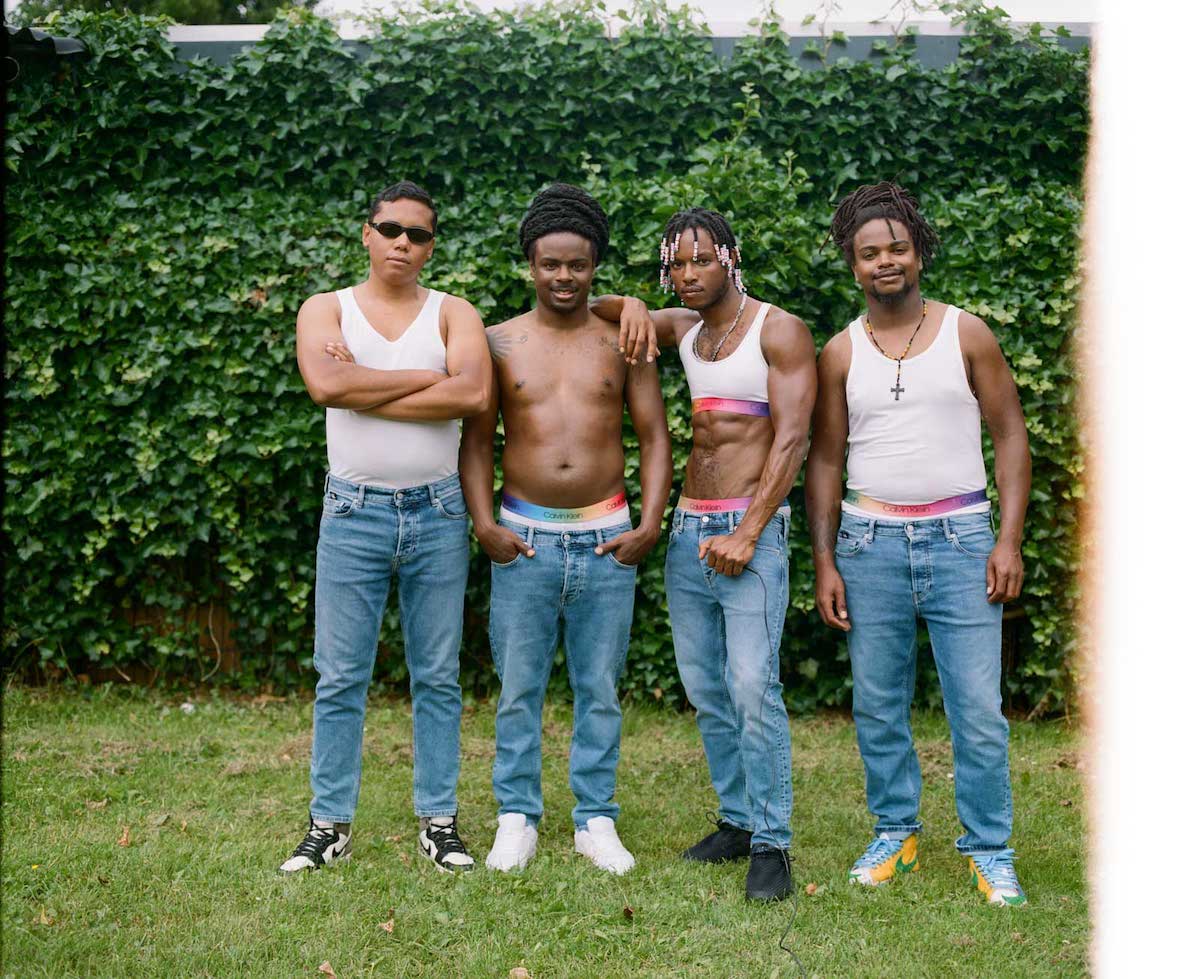
My Brothers, JeanPaul Paula
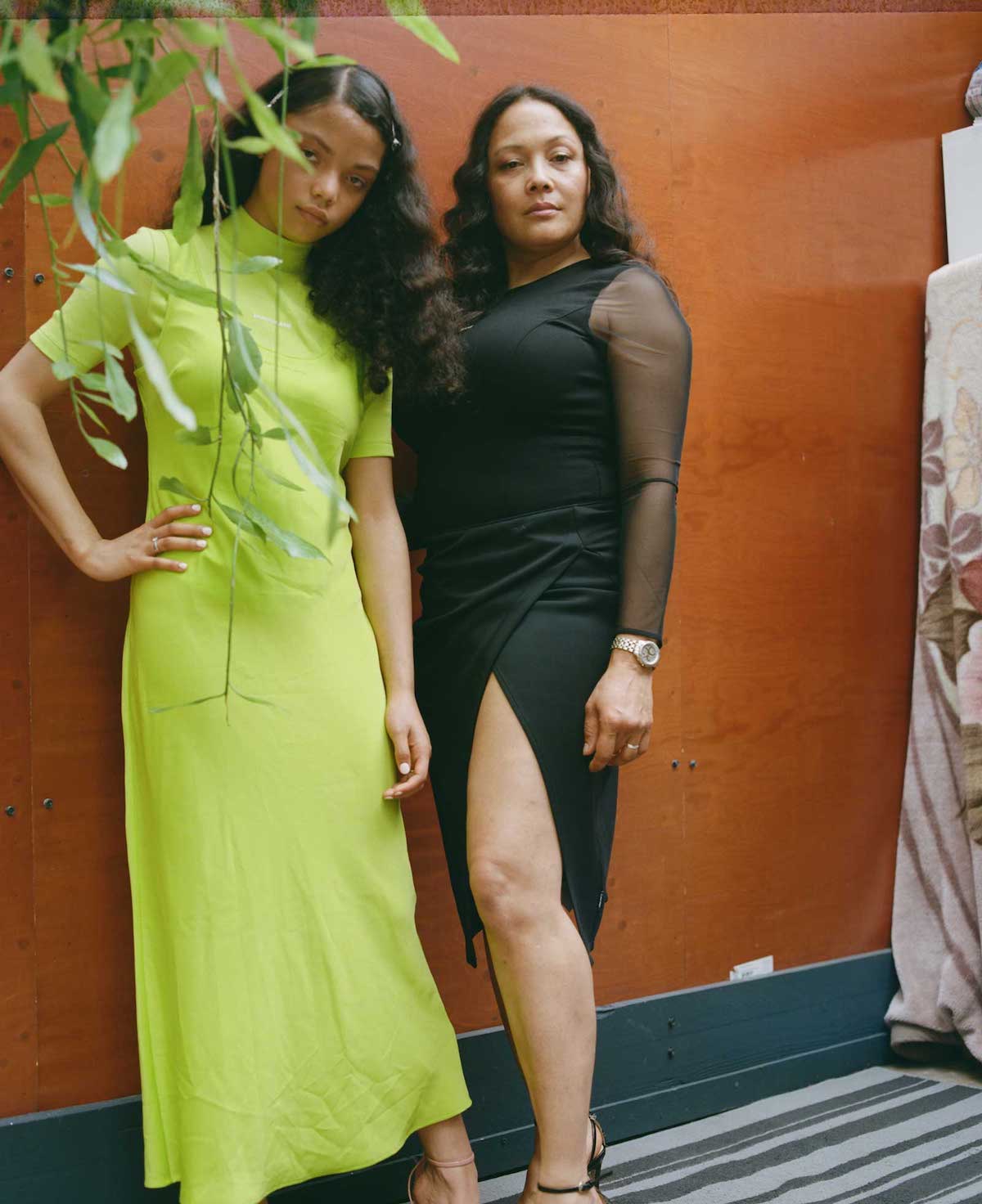
My sister and stepmother, JeanPaul Paula
The world has a way to go, but internal and outward investigations give us the power to create change. How did the recent lockdown effect your internal on the subjects your discuss Nos Kultura?
The COVID-19 pandemic made me hold a mirror up to myself and take a good look at where I was in life and what I had accomplished so far. I thought I had been doing well, only to realise that my work was still very much dependent on other people’s willingness to work with me and I wasn’t able to sustain myself. As a creative it is imperative that I learn to apply the joy and smart that I apply to my work to the business that I build for myself. COVID made me dream bigger yet be more realistic. If I want to change the world, I have to understand who I am, where I am and apply the pressure where it is needed.
2021 has been a year of transformation and vocalization, in many ways changing the way we consume art. Returning to an exhibition space is exciting. How do you feel your work translates into a traditional space as opposed to a digital one?
Although we had several lockdowns I’ve actually had exhibitions the entire period! Last year I had a collaboration with Patta called “We will be here forever…” at Oscam, and I also had an exhibition with Metro 54 and Rita Ouedraogo’s called “A Funeral for street Culture” at Framer Framed this summer. Be it moving or still, I hope they convince the viewer to feel.
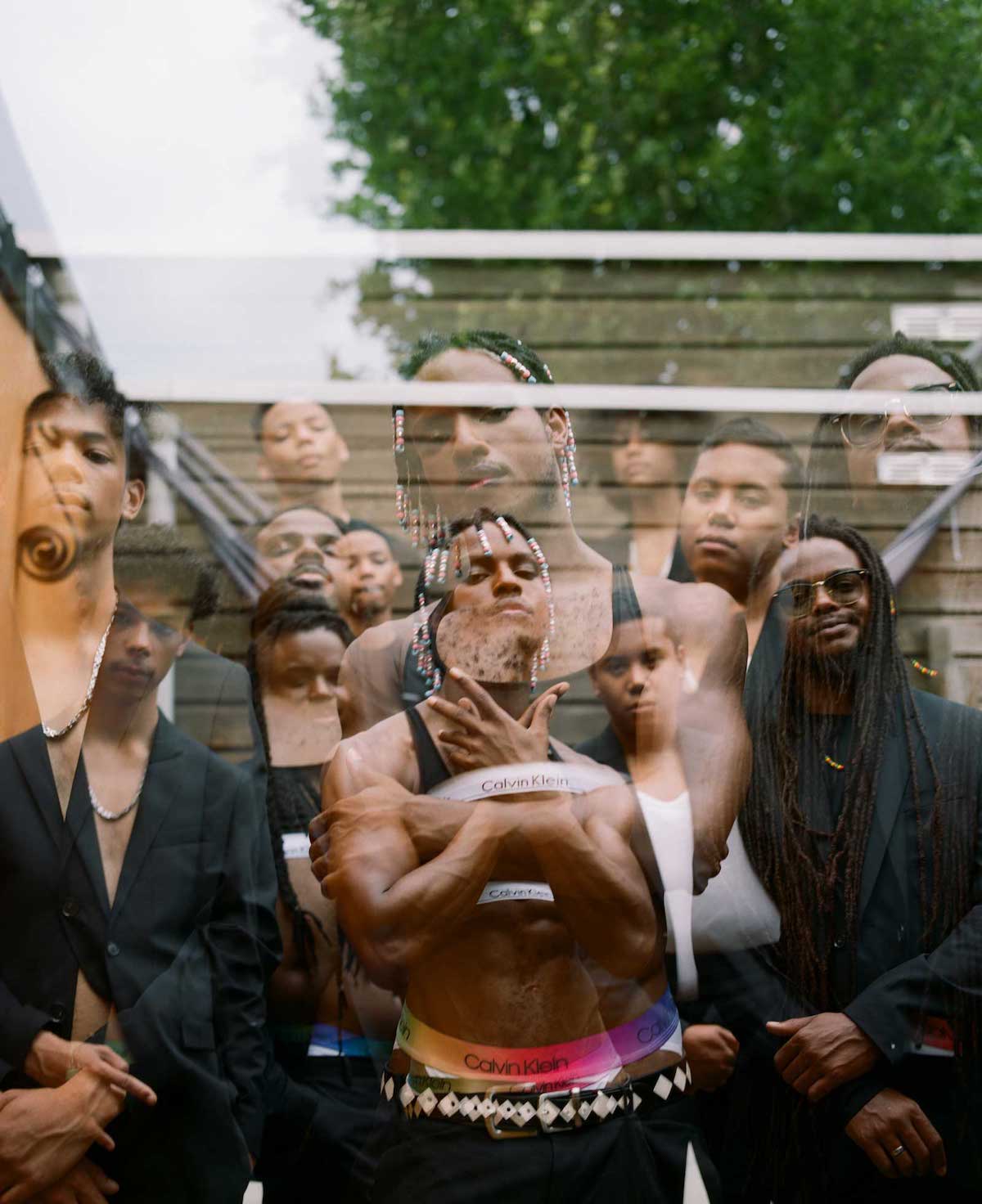
Nos Kultura is a continuation of Calvin Klein’s ongoing pride campaign – why is it important that now, more than ever, we see brands supporting and uplifting the work of independent artists?
I’m happy to see global change when it comes to the individuals that are being represented in these types of collaborations. The interesting part is that this is happening because there is a global conversation on change. I hope brand support is an opening for growth for both the artists and the brands and that the relationships build.
The future is finally looking brighter – what are you currently manifesting?
I’m manifesting financial and creative independence.
The Nos Kultura exhibition will be open to visit from 23 – 29 August from 12:00 to 18:00 at Hazenstraat 18 in Amsterdam.
Notifications